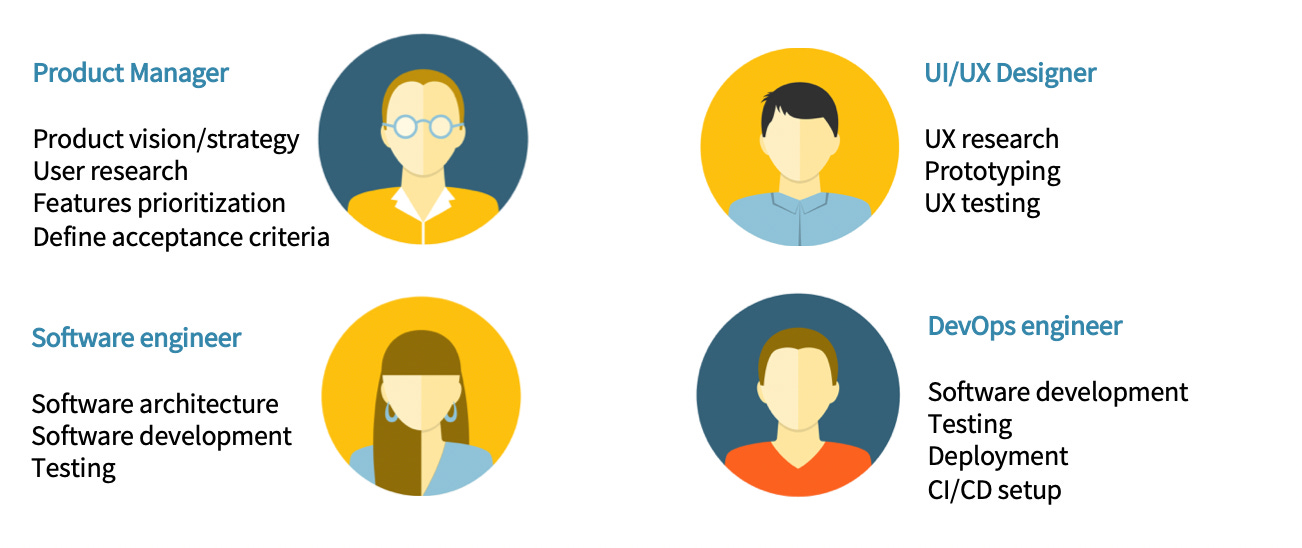How to Choose the Right Roles to Outsource?
A Guide to Outsourcing Product Development Roles without Risking your Business
In my previous article, we explored the benefits and risks of outsourcing product development.
Now, we’ll take a step further. How to set up a successful product development team and which roles are best suited for outsourcing versus those that should remain in-house.
True, there’s no universal answer—it depends on factors like your development stage and unique business needs. But by evaluating the options and weighing the pros and cons for your specific situation, you can make an informed decision and increase your chances of success.
In this article, we'll cover:
✅ The essential skills for a product development team
🔒 Which roles to outsource during MVP product development
🔒 Which roles to outsource when scaling from MVP to a mature product
🔒 Which roles to outsource when software becomes a strategic asset
🔒 Outsourcing Non-Core Activities
Key Skills in a Product Development Team
A successful product development team requires a blend of essential skills, each playing a crucial role in the product's success. Here are the key skills a product team should have:
Product management: This skill set might not always come with the title "Product Manager," especially in small startups where the founder often takes on this role. Product management involves owning the product vision and strategy, understanding user needs, and organizing product delivery to minimize the time required to meet customer demands.
UI/UX design: For user-facing products, proficiency in UX research, prototyping, and UX testing is crucial. The level of experience required depends on the project's complexity, the underlying third-party platforms used, or the user expectations in the specific domain.
Software engineering: This area often demands the most effort in product development. It covers software architecture, development, testing, and software maintenance. Software engineers ensure the product's technical foundation is robust and scalable.
Operations: This area involves responsibilities like infrastructure setup, and cloud maintenance, deployments management, all necessary for maintaining a reliable product and seamless development experience.
Quality assurance: Ensuring the product meets the highest standards of quality is vital. QA involves rigorous testing, bug identification, and ensuring the product functions as intended. This skill set is essential for delivering a reliable product with good user experience.
While this list highlights essential skills, the specific structure of your team may vary. It is not necessary to have a dedicated role to cover each of these areas. This depends on the scale and the skills of the team members.
Here is an example of how a team could potentially be structured.
With this framework in mind, let’s explore different scenarios and evaluate which roles in each case could be outsourced without posing a significant risk to product development.
Outsourcing for MVP Development
Keep reading with a 7-day free trial
Subscribe to Lean Product Growth to keep reading this post and get 7 days of free access to the full post archives.



